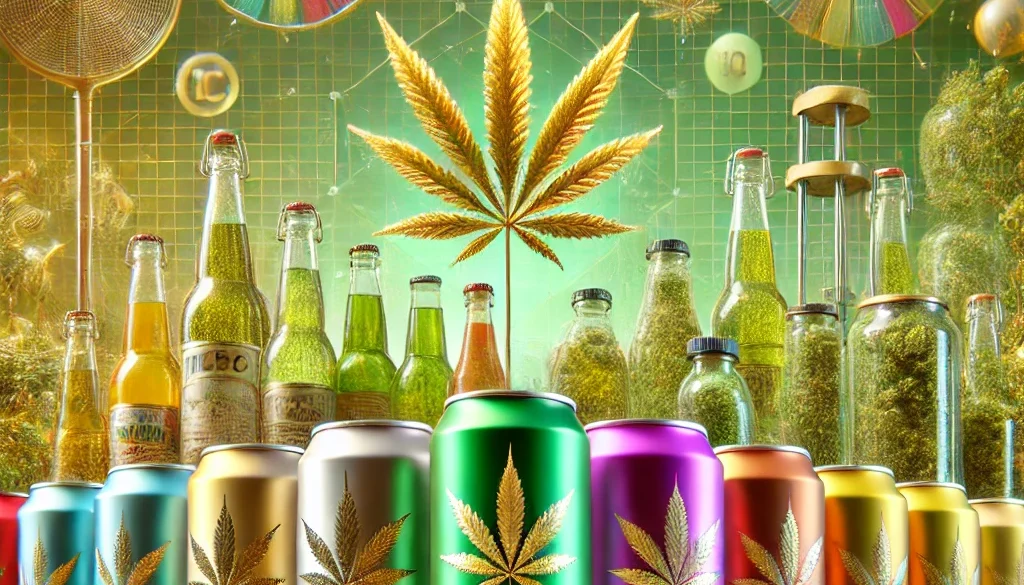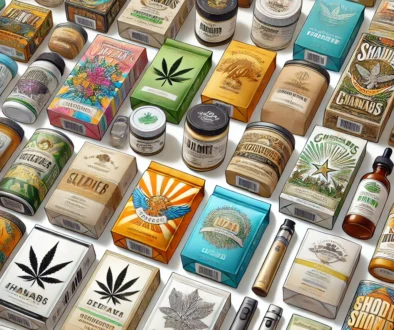Current State of Hemp Beverages: Market and Regulatory Perspectives
The hemp beverage market is evolving rapidly, presenting both opportunities and challenges. As the landscape shifts, it is crucial to adopt a balanced approach that fosters growth while implementing common-sense regulations to mitigate risks, particularly concerning products designed to attract children and high THC concentrations.
Optimistic Trajectory
The optimism surrounding the hemp beverage market stems from several factors:
- Market Growth: The hemp-derived beverage segment is gaining traction, with companies like Tilray Brands leveraging their scale to introduce delta-9 THC drinks across key U.S. markets. Consumer interest in cannabis-infused beverages is on the rise, positioning businesses to capture significant market share.
- Consumer interest in hemp beverages has surged in recent years, driven by a growing awareness of the potential benefits of cannabinoids and a shift towards healthier lifestyle choices. Surveys indicate that a significant portion of consumers, particularly millennials and Gen Z, view hemp-derived products as natural alternatives to traditional alcoholic beverages. Many appreciate the low-calorie options that hemp seltzers and other infused drinks offer, making them appealing for social occasions without the drawbacks associated with alcohol.
- Additionally, consumers are increasingly discerning about product transparency and safety; they prefer brands that provide clear labeling and information regarding THC content and sourcing practices. This demographic shift presents a substantial opportunity for businesses to cater to health-conscious consumers by developing innovative, compliant, and responsibly marketed hemp beverages.
- Cross-Industry Collaboration: Given the trajectory and emergence of THC beverages as a more socially accepted product offering in many states, cannabis businesses are advised to strategically consider diversifying into the hemp beverage market, fostering collaboration rather than competition. This proactive approach can play a crucial role in normalizing hemp beverages within retail spaces, facilitating smoother integration with established retailers like Total Wine & More.
- Additionally, this diversification can be particularly advantageous given the implications of IRS Code Section 280E. Under this regulation, businesses engaged in the sale of federally illegal substances, such as cannabis, cannot deduct normal business expenses from their taxable income. By exploring the hemp beverage segment, which operates under a more favorable legal framework, companies can potentially mitigate the financial burdens imposed by 280E. This shift not only enhances revenue streams but also positions businesses to adapt to a rapidly evolving market landscape while adhering to legal compliance.
- In this dynamic environment, cannabis companies that leverage their expertise to enter the hemp beverage market can create new opportunities for growth, sustainability, and responsible consumer engagement.
- Potential for New Legislation: Recent legislative developments in Congress, particularly the introduction of the Hemp Economic Mobilization Plan (HEMP) Act by Senator Rand Paul, aim to amend the definition of hemp to raise the allowable delta-9 THC threshold from 0.3% to 1%. This proposed change represents a significant opportunity for the hemp beverage market, as it would enhance product offerings and further legitimize the industry. Additionally, the ongoing discussions surrounding the 2024 Farm Bill include provisions that could redefine the legal standards for hemp by incorporating total THC (including tetrahydrocannabinol acid, or THCA) in compliance calculations.
- As lawmakers consider these amendments, they signal a willingness to adapt to the evolving hemp market, potentially allowing for higher-potency products. Such changes could not only meet increasing consumer demand but also provide a clearer regulatory framework for hemp-derived products. By supporting this legislation, the hemp industry can position itself for robust growth, fostering innovation and expanding market opportunities.
As the hemp beverage market continues to evolve with promising consumer trends and legislative support, it is equally important to understand the regulatory landscape that governs these products, which presents both challenges and opportunities for industry players.
Regulatory Landscape
The regulatory environment is currently marked by significant developments:
- California’s Emergency Rule: Governor Newsom’s recent emergency regulation effectively bans hemp-derived THC beverages. This ruling has sparked concerns within the industry, suggesting that it may inadvertently hinder cannabis businesses rather than provide clear guidelines. Many believe this approach could create more confusion than clarity, leading to a fragmented market where compliance is difficult to enforce.
- Missouri’s Executive Order: In Missouri, Governor Mike Parson signed Executive Order 24-10, banning intoxicating hemp products, including THC-infused beverages, until they can be regulated by the FDA or through new state legislation. This order was prompted by a significant increase in cannabis poisoning incidents among children, raising concerns about the safety of unregulated products. The executive order has faced pushback from industry leaders who argue it overreaches and threatens the market’s growth
- Nebraska’s Regulatory Actions: Nebraska has seen significant regulatory developments, including a crackdown on unregulated delta-8 THC products. The state’s Attorney General has initiated a campaign against retailers selling these products, resulting in settlements with several companies that were found to be in violation of consumer protection laws. Additionally, proposed legislation to impose a 100% tax on consumable hemp products has sparked debate among lawmakers, highlighting the challenges of maintaining a viable market.
Challenges and Concerns
While optimism exists, caution is warranted due to several emerging challenges:
- Attractive Products for Kids: The rise of hemp products that mimic popular candies poses significant risks. Bad actors are leveraging lax regulations to produce enticing products for children, prompting calls for stricter guidelines to protect young consumers.
- High THC Concentrations: The increasing prevalence of high-THC hemp products, which are more appropriate for regulated markets, has created friction between cannabis and hemp businesses. This infighting can be detrimental to both sectors, as they face overlapping regulations and public perception issues.
- Need for Common-Sense Regulations: There is a growing consensus that hemp beverages should have their own regulatory framework distinct from cannabis and traditional beverages. Reasonable regulations would focus on maintaining low doses, ensuring products are marketed as alcohol alternatives, and adhering to state restrictions on THC levels.
Conclusion
The future of hemp beverages looks promising, with various factors driving market growth, including rising consumer interest, cross-industry collaborations, and favorable legislative developments such as the proposed amendments to the THC threshold in the upcoming Farm Bill. However, the industry must navigate a complex regulatory environment, marked by state-level restrictions and federal initiatives aimed at redefining hemp. The challenges posed by attractive products for children and high THC concentrations underscore the need for common-sense regulations that ensure consumer safety and promote responsible market practices. By fostering collaboration between hemp and cannabis businesses and advocating for clear legislative frameworks, the hemp beverage market can thrive as a legitimate and respected segment within the broader beverage industry.
At Holon Law Partners, we pride ourselves on being preeminent experts in the national THC beverage space. Our team of attorneys brings years of experience in designing and overseeing comprehensive compliance programs tailored to the unique challenges of the hemp beverage market. We are actively engaged in advocacy before state agencies, ensuring that our clients’ voices are heard in the evolving regulatory landscape. Our strategic market consultations equip businesses with the insights needed to navigate opportunities and challenges effectively. Additionally, we provide robust litigation and defensive strategies to protect our clients’ interests in this dynamic industry. As the market for THC beverages continues to expand, Holon Law Partners stands ready to guide businesses toward sustainable growth and compliance.




